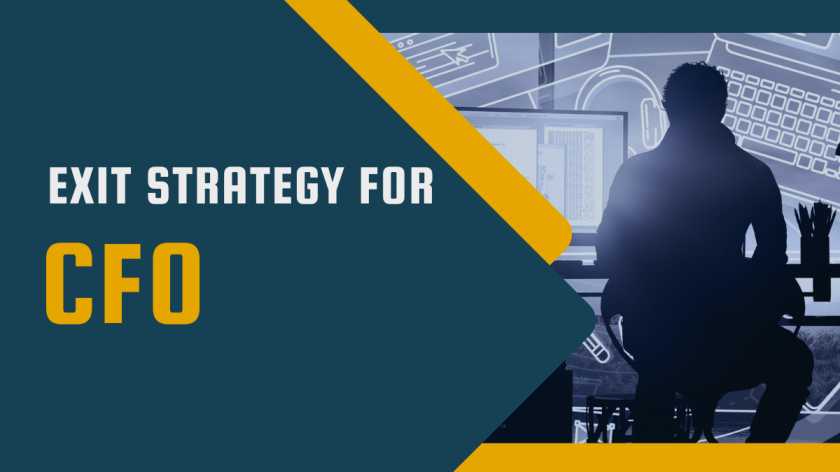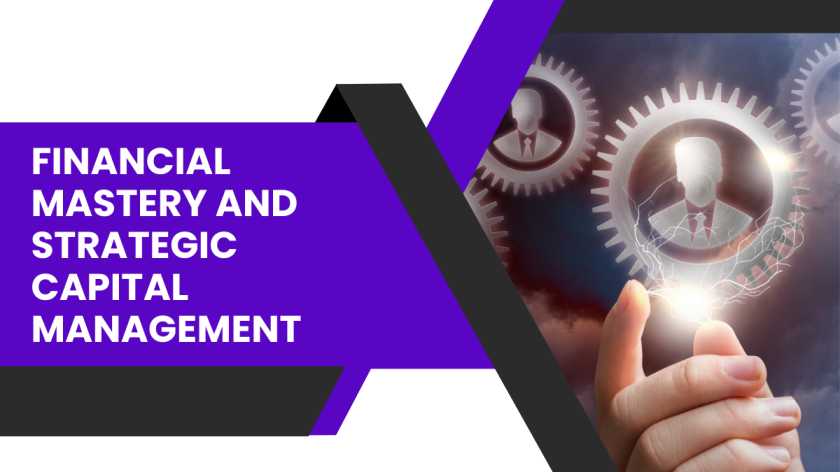With the new market developments, businesses have become more dynamic than ever. This also affected some prominent roles in a business setup, like CFOs. In today’s landscape, the role of a chief financial officer (CFO) has evolved beyond traditional financial management. They are pivotal in driving organisational growth by bringing financial expertise to decision-making. CFOs significantly influence two critical aspects: smart resource allocation and smart market positioning.
Smart resource allocation means deploying finances for maximum returns. Likewise, smart market positioning strategically positions products to gain a competitive edge. However, there’s much more to these strategies. If you are an aspiring CFO, sign up for CFO course to dive deep into the strategies and learn about their real-world applications.
What is smart resource allocation?
The strategic process of efficiently distributing an organisation’s resources, including finances, time, and assets, to maximise productivity, profitability, and overall performance is called smart resource allocation. This process of smartly allocating resources is a task of responsibility, and thus, the CFO of a company plays a central role in it. They identify and prioritise key areas and projects that warrant investment while ensuring that resources are utilised optimally to achieve strategic objectives.
CFO’s Role in Smart Resource Allocation
The CFO’s role involves first evaluating the company’s financial health and analysing available resources. Then, they strategically align these two with the organisation’s goals. In this process, CFOs use financial data and analytics to make informed decisions about where to allocate funds for the greatest impact.
Additionally, they identify and manage financial risks, ensuring a sustainable resource allocation strategy. CFOs also collaborate with other department heads to prioritise initiatives, create budgets, and monitor financial performance.
What is smart market positioning?
Smart market positioning is about establishing a distinctive and competitive position for a company’s products or services within its target market. This complicated yet most important business process involves identifying and leveraging unique selling points, understanding customer needs, and effectively communicating the value proposition to the target audience. Only after successfully applying these strategies can one stand out from competitors, resonate with the target market, and create a strong brand identity.
Role of a CFO in Smart Market Positioning
A thoughtful allocation of resources is one of the first steps to positioning your business on top of the market. However, apart from that, there are several other elements that a CFO handles with the utmost care for smart market positioning. Here are a few of them:
-
Pricing strategies
The CFO collaborated with the marketing team to develop a strategy that ensures pricing aligns with the perceived value and competitive landscape.
-
Competitive analysis
They are responsible for making informed decisions after evaluating competitors’ market positioning strategies and their potential impact on the company’s financial performance.
-
Profitability assessment
Tracking the financial performance of products or services with respect to their specific market positioning is quite crucial for a CFO.
-
Adaptation to market changes
The dynamic market needs to be studied daily to note if the applied strategies yield any results. Thus, CFOs monitor the market closely and recommend adjustments to changing dynamics.
Importance of Smart Resource Allocation and Smart Market Positioning
In a business, almost every department is interconnected with one another to achieve optimum results. Similarly, effective resource allocation sets the path for enhanced market positioning. These are two of the crucial aspects when it comes to building a successful business. Below are a few reasons why they are crucial:
-
Optimal resource utilisation
Ensuring smart resource allocation means efficient utilisation of finances, manpower, and assets. This, in turn, prevents waste, maximises productivity, and boosts profitability.
-
Strategic focus
Once the company has allocated all its resources judiciously, it can prioritise key projects and initiatives that align with its long-term strategy. Then, it can strategise in areas with the most significant impact, like the market positioning of the business.
-
Customer relevance
It is evident how effective market positioning speaks directly to the needs and desires of the target audience. This is why, working effectively on this aspect, businesses build a strong connection with customers, increasing loyalty and brand advocacy.
-
Competitive advantage
A company must differentiate itself from competitors with smart market positioning to succeed. It creates a unique identity, allowing the organisation to stand out in a crowded marketplace.
-
Financial sustainability
To maintain financial sustainability, both resource allocation and market positioning are crucial. Effective resource allocation leads to profitability, while robust market positioning enhances brand value, ensuring long-term financial health.
Tips for Smart Resource Allocation and Market Positioning
For a business, it is pivotal to allocate its resources judiciously and position its product or service on top of its competitors in the market. To achieve this objective, a professional with a CFO certification can be a real asset. They apply strategies that give the desired results. Below are some tips for both smart resource allocation and smart market positioning.
For Smart Resource Allocation:
-
Strategic alignment
When allocating resources, remember the organisation’s strategic objectives and long-term goals. Aligning the two should be the priority.
-
Data-driven decisions
Smart resource allocation is always based on data and analytics to make informed decisions. Prioritise projects with the highest potential for return on investment (ROI).
-
Continuous evaluation
Monitoring your projects daily is essential. For example, a company reallocates its resources from less successful development projects to more promising ones, ensuring efficiency.
-
Flexibility
Businesses must allocate flexible resources, adapting to changing market conditions and emerging opportunities.
For Smart Market Positioning:
-
Market research
Investing in comprehensive market research is always fruitful, especially in understanding customer preferences, market trends, and competitive landscapes.
-
Unique value proposition
Ensure your brand has a unique value proposition that sets you apart and resonates with your target audience.
-
Consistency
Your market positioning should be consistent across all communication channels, including branding, advertising, and customer interactions.
-
Feedback
Establish a feedback loop with customers to refine market positioning strategies based on insights. Also, be prepared to adapt to changing consumer behaviours.
Conclusion
Judicious use of data and aligning it with strategic goals leads to optimal resource utilisation necessary to maintain competitive advantage and financial sustainability. Therefore, for businesses aiming to excel in these areas, a professional with a CFO certification can be invaluable.
To be one such asset for your dream company, join the Postgraduate Certificate Programme for Emerging CFOs by Imarticus and excel in today’s competitive business world. This programme equips future financial leaders with the expertise to master resource allocation and market positioning, ensuring their significant contribution to the organisation’s success.



